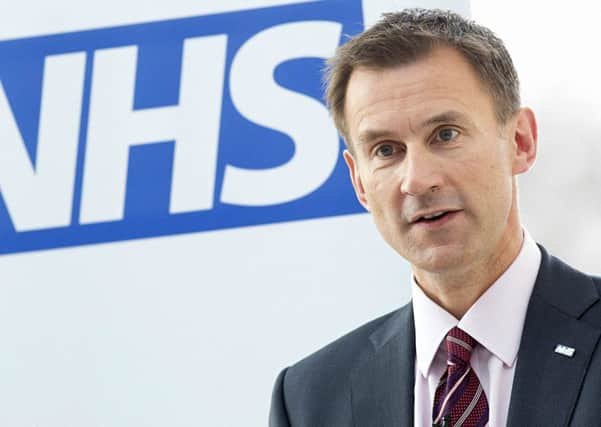IAIN WRIGHT: Government must spend more on NHS


The root cause of the current problem is fairly simple. As NHS providers themselves have said, the gap between the services the NHS is being asked to deliver and the funding it has been given by the Government is not only too big but is growing rapidly. This has been exacerbated by the cold winter weather, as it always is.
In response the Health Secretary Jeremy Hunt suggested in the House of Commons on Tuesday that the four hour A&E target, which sets out that a minimum of 95 per cent of all patients to A&E will be treated within four hours, may be downgraded and no longer apply to minor injuries.
Advertisement
Hide AdAdvertisement
Hide AdThe Government has also suggested that the NHS could save money through greater efficiencies. I don’t find this particularly reassuring; while there will always be some people who go to hospital when they don’t need to there is no evidence to suggest that this is a major contributor to the current crisis. And while all Governments would like to make significant savings in a relatively painlessly way through efficiencies that is always far easier said than done. In any event this is inadequate: with an ageing population and rising inflation there is really no alternative to increasing NHS funding if we want to solve this problem.
You may recall that several senior cabinet Ministers, including Foreign Secretary Boris Johnson and Transport Secretary Chris Grayling, argued around six months ago that the Government could spend an additional £350 million per week, or £18 billion a year, on the NHS if the UK voted to leave the European Union. These Ministers should surely be using their influence in the new Government to lobby for the increased NHS funding that they recently advocated, even if the colossal figures quoted during the referendum campaign were always somewhat unrealistic.
With extra money we could make targeted interventions to address the root causes of the current crisis in the NHS: the increased waiting times to see GPs; the cuts to community pharmacies that are reducing opening hours, limiting deliveries to housebound patients and leading to fewer staff on duty; and address the precarious financial position many NHS Trusts find themselves in, which of course makes significant improvements to hospitals difficult to imagine; we could put together a plan to return services to Hartlepool and protect threatened services such as the Assisted Reproduction Unit.
It is clear that there is an acute funding crisis in the NHS, preventing health professionals from carrying out their work with the care and dedication they would like, and that this has been caused by the Government failing to put sufficient into the health service. The Government needs to deal with the crisis, which means increasing spending, not shifting the goalposts by altering the targets.